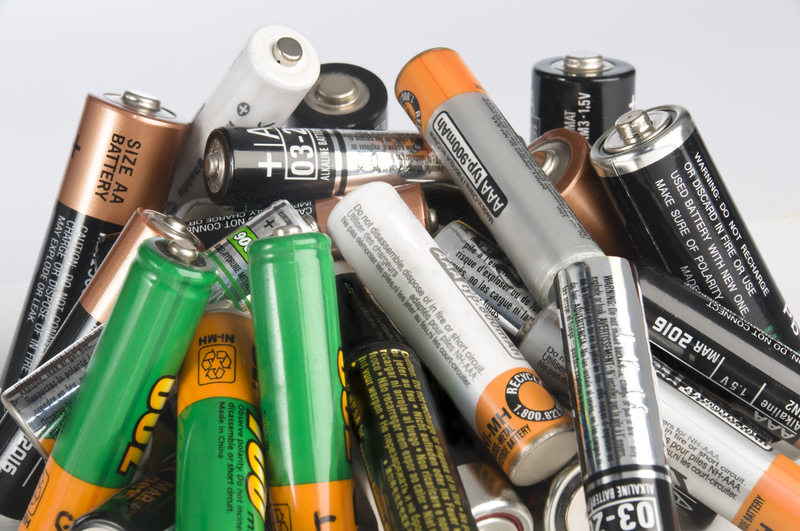Your Role in Reducing PPE Waste Pollution: A Comprehensive Guide
Understanding the Challenge: PPE Waste Pollution
The surge in the use of Personal Protective Equipment (PPE) during recent global health crises has been instrumental in safeguarding public health. However, the environmental impact of PPE waste has become a growing concern. From discarded masks littering city streets to gloves polluting waterways, the accumulation of PPE is now a significant source of waste pollution. This article explores how you can participate in reducing PPE waste pollution and contribute to a cleaner, healthier planet.

What is PPE Waste Pollution?
PPE waste pollution refers to the environmental contamination caused by improperly discarded Personal Protective Equipment, such as masks, gloves, face shields, and gowns. These items are primarily made from non-biodegradable plastics, which pose long-term risks to terrestrial and aquatic ecosystems, wildlife, and human health. The pandemic has exponentially increased the use and disposal of single-use PPE, making it crucial for us to adopt responsible waste management practices.
Common Types of PPE Contributing to Pollution
- Disposable face masks
- Nitrile, latex, and vinyl gloves
- Plastic face shields
- Protective gowns
- Shoe covers and hairnets
Why Is PPE Waste Pollution a Serious Issue?
The environmental consequences of PPE pollution are alarming. The single-use nature of most PPE results in significant amounts of waste that persist in the environment for decades. Some of the critical problems associated with PPE waste include:
- Non-biodegradable materials: Most PPE items are composed of polypropylene and other plastics that do not decompose easily, leading to long-term environmental accumulation.
- Harm to wildlife: Animals often mistake discarded masks and gloves for food, leading to ingestion and fatalities.
- Microplastic pollution: As PPE breaks down, it releases microplastics into the soil and water bodies, contaminating food chains.
- Public health risks: Improperly disposed PPE can facilitate the spread of pathogens and endanger sanitation workers.
Your Vital Role in Minimizing PPE Waste Pollution
Every individual has a responsibility to reduce personal and community-level PPE waste. Small, consistent actions can collectively make a significant impact. Below, we detail effective steps you can take to address PPE waste pollution and promote sustainability.
Adopt Proper PPE Disposal Practices
- Don't litter PPE: Always dispose of used PPE in proper receptacles. Littering masks or gloves in public spaces increases pollution and health hazards.
- Follow local disposal guidelines: Many cities and municipalities have guidelines for disposing of PPE safely, often requiring them to be placed in designated bins or double-bagged to reduce contamination risks.
- Segregate PPE waste: Whenever possible, discard used PPE separately from regular recyclables to prevent the spread of disease and make waste management more efficient.
- Avoid flushing PPE: Never flush masks, gloves, or other PPE items down the toilet, as they can clog sewage systems and end up in water bodies.
Switch to Reusable PPE Where Possible
Transitioning from single-use to reusable PPE options significantly reduces waste generation. Some alternatives include:
- Cloth masks: Opt for washable, reusable face masks certified for adequate protection. Ensure proper washing and handling for effectiveness.
- Reusable face shields: Use high-quality, durable plastic shields that can be sanitized and reused.
- Washable gowns: Choose fabric gowns that can be laundered and reused rather than disposable ones when appropriate for the setting.
Participate in Community Clean-Ups
Volunteer for or organize local clean-up events focused on collecting discarded PPE from roadsides, parks, and natural environments. These efforts not only remove waste but also raise awareness about the impact of PPE pollution.
Support Recycling & Upcycling Initiatives
While recycling of PPE is still in its early stages due to contamination and material challenges, innovative recycling programs are emerging globally. You can:
- Locate drop-off programs: Search for local specialized bins or programs that accept used PPE for recycling.
- Promote PPE upcycling: Encourage and support creative initiatives that turn used PPE into new products, like road-building material or art projects.
- Advocate for infrastructure: Engage with community leaders and policymakers to invest in dedicated recycling systems for PPE waste.
The Role of Education & Advocacy
Spreading awareness is one of the most powerful tools in minimizing PPE waste pollution. Here's how you can make a difference as an advocate:
- Educate your network: Share information about the dangers of PPE pollution and best disposal practices with family, friends, and colleagues.
- Promote responsible consumption: Encourage mindful PPE use and advocate for switching to sustainable options when possible.
- Engage on social media: Leverage your online presence to spread the message, participate in campaigns, and support global clean-up movements.
Encouraging Innovation in PPE Design
As an individual, you can influence manufacturers and policymakers by:
- Choosing eco-friendly brands: Support companies committed to developing biodegradable or easily recyclable PPE products.
- Providing feedback: Let suppliers and businesses know you value sustainable packaging and waste management practices.
- Participating in public consultations: Voice your opinion when new regulations or product standards are proposed regarding PPE waste.
Reducing PPE Waste Pollution in Workplaces and Public Spaces
Workplace Responsibility
- Provide clear guidelines: Employers should offer training and signage on the correct disposal of PPE.
- Install designated bins: Make it easy for staff to separate and properly discard PPE by providing dedicated bins in convenient locations.
- Encourage reusable PPE: Where safe and practical, transition to washable or multi-use PPE options and supply necessary cleaning resources.
Public Spaces and Events
- Install visible bins: Cities, malls, and transit stations should ensure visible, regularly emptied PPE disposal stations.
- Promote public awareness: Use posters and announcements to encourage safe and responsible PPE disposal by the public.
How Businesses Can Lead by Example in Tackling PPE Waste
Businesses play a significant role in influencing PPE waste reduction. Here's how organizations can make a positive impact:
- Procure sustainable PPE: Source eco-friendly or recyclable PPE products whenever possible.
- Take-back programs: Set up systems where used PPE can be returned and responsibly processed or recycled.
- Engage in corporate social responsibility (CSR): Fund or partner with environmental groups working on PPE pollution solutions.
Making PPE Waste Pollution Reduction Part of Your Daily Life
Sixty seconds might be all it takes to make a responsible choice every time you use PPE. Consistently practicing these simple steps amplifies your impact:
- Carry a spare mask bag: Keep a pouch or envelope for storing used masks until you find a proper disposal bin.
- Dispose of gloves correctly: Remove gloves safely and discard them in regular waste, not recycling bins, unless local guidance suggests otherwise.
- Wash and sanitize reusable PPE regularly: Maintain hygiene standards while reducing waste.
- Lead by example: Demonstrate good habits to those around you, inspiring others to follow suit.
Key Takeaways: Your Influence on Reducing PPE Waste Pollution
- Proper disposal and segregation of PPE waste is vital to preventing environmental and health hazards.
- Switch to reusable PPE products whenever safe and possible to cut down on single-use waste.
- Support and promote recycling and upcycling initiatives for PPE waste in your community.
- Educate and advocate: Help raise awareness about the dangers of PPE pollution and the importance of responsible use.
- Encourage innovation: Choose and promote eco-friendly PPE solutions.
Reducing PPE waste pollution begins with you. Every discarded mask or glove avoided, every sustainable product chosen, and every piece of advocacy helps drive the movement toward cleaner communities and healthier ecosystems. Take action today to leave a positive environmental legacy for future generations!

Frequently Asked Questions About PPE Waste Pollution
Can I recycle single-use masks and gloves with my household recyclables?
No, single-use masks and gloves should not be placed in regular recycling bins. These items are typically made from materials that are not accepted in municipal recycling and may pose contamination or health risks. Instead, follow local guidelines and use designated PPE disposal methods.
What should I look for in reusable PPE?
Ensure reusable PPE is certified and provides adequate protection. Cloth masks should have multiple layers, fit well, and be washable. Face shields should be made of sturdy materials that can withstand repeated cleaning. Always follow the manufacturer's care and maintenance instructions.
What happens if I incorrectly dispose of PPE in public spaces?
Littered PPE can be swept into waterways, harm wildlife, contribute to microplastic pollution, and spread disease. It also increases the workload and risks for sanitation workers. Proper disposal protects both the environment and public health.
How can I encourage my workplace or community to do more?
Start conversations with management or community leaders about the importance of PPE waste reduction. Propose practical steps like installing PPE bins, organizing educational campaigns, and supporting local recycling initiatives.
Are there any new technologies addressing PPE waste pollution?
Researchers and environmental organizations are developing methods to recycle or upcycle PPE waste, such as transforming plastic-based PPE into construction materials or using advanced sterilization for reprocessing. Stay informed about local programs and support technological innovations.
Conclusion: Empower Yourself in the Fight Against PPE Waste Pollution
Stopping PPE waste pollution requires collective action. Your individual choices--no matter how small--carry significant weight. By staying informed, embracing sustainable habits, and speaking out for change, you contribute powerfully to a cleaner, safer world. Let's rethink our relationship with PPE and make every piece count towards a brighter, less polluted future.
